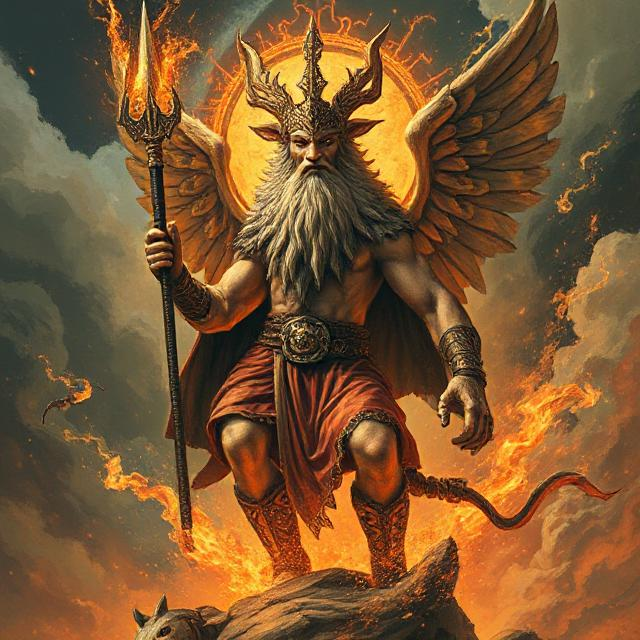
Hypermasculinity in World Politics
The interplay of hypermasculinity, personality cults, and the mythical construction of leadership has emerged as a defining feature of 21st-century global politics, with profound implications for governance, international relations, and democratic norms.
These phenomena, while historically recurrent, have been amplified by contemporary socio-political dynamics, including digital media proliferation, rising populism, and existential crises such as climate change and pandemics.
Hypermasculinity, characterized by the valorization of aggression, dominance, and emotional detachment, has been strategically weaponized in modern political discourse. Rooted in patriarchal paradigms, it conflates leadership efficacy with performative toughness, often manifesting in militaristic rhetoric, xenophobic policies, and the dismissal of diplomacy as weakness.
Leaders such as Vladimir Putin, Rodrigo Duterte, Narendra Modi and Donald Trump have cultivated public personas that prioritize unilateralism and physical bravado, framing complex geopolitical challenges through binaries of "strength" versus "weakness." Psychological studies, such as those by Connell (2005) on hegemonic masculinity, underscore how such performances appeal to societal anxieties about identity and security, particularly in contexts of economic precarity or cultural dislocation.
However, this reductionist framing undermines nuanced policy-making, escalates international tensions, and marginalizes cooperative approaches to global issues like nuclear proliferation or climate governance.
The resurgence of personality cults—exemplified by figures like Kim Jong-un, Recep Tayyip Erdoğan, and Narendra Modi—reflects a deliberate erosion of institutional checks in favor of centralized, charismatic authority. Such cults thrive on the systematic glorification of leaders as infallible saviors, often propagated through state-controlled media, digital platforms, and nationalist narratives.
Political theorists like Max Weber identified charismatic authority as inherently unstable, reliant on perpetual validation through spectacle rather than substantive achievement. In the digital age, algorithmic amplification and disinformation networks exacerbate this dynamic, enabling leaders to bypass traditional accountability mechanisms.
The consequence is a hollowing of democratic processes: opposition is framed as treason, dissent as heresy, and critical inquiry as disloyalty. Empirical analyses, such as Levitsky and Ziblatt’s (2018) work on democratic backsliding, demonstrate how personality cults correlate with the dismantling of judicial independence, press freedom, and legislative oversight, fostering environments ripe for corruption and human rights abuses.
Closely intertwined with hypermasculinity and personality cults is the mythical idealization of leadership, wherein political figures are imbued with quasi-messianic qualities. This myth-making, often rooted in nationalist or religious symbolism, positions leaders as transcendent figures uniquely capable of resolving societal crises.
Jair Bolsonaro’s framing as a "mythical bandeirante" reclaiming Brazil’s past glory, or Viktor Orbán’s depiction as the "defender of Christian Europe," exemplifies this trend. Such narratives exploit cognitive biases identified in social psychology—such as the "halo effect" and attribution error—to engender uncritical loyalty.
However, as political scientist Jan-Werner Müller (2016) argues, mythical leadership fosters a dangerous paradox: it elevates individuals to superhuman status while absolving them of accountability for systemic failures. The 2008 financial crisis and COVID-19 pandemic illustrate how reliance on "strongman" rhetoric often exacerbates governance failures, as leaders prioritize image management over evidence-based responses.
The confluence of these phenomena signals a regression toward pre-Enlightenment models of authority, where power is legitimized through spectacle rather than reason. Hypermasculine posturing, personality cults, and mythical narratives collectively undermine the Enlightenment ideal of governance as a deliberative, participatory process.
They foster political cultures where emotion supersedes evidence, loyalty trumps competence, and short-term populism displaces long-term strategic planning. Furthermore, these dynamics have global ramifications: hypermasculine foreign policies escalate militarization, personality-driven diplomacy destabilizes alliances, and mythical nationalism obstructs transnational cooperation on existential threats.
To sum, counter these trends, a reinvigoration of institutional and normative frameworks is imperative. This necessitates media literacy initiatives to demystify leadership personas, electoral reforms to curb executive overreach, and international coalitions to uphold democratic standards. While charismatic leadership can unify societies during crises, its excesses must be tempered by robust checks and balances.
The 21st century demands a reimagining of leadership that prioritizes collective intelligence, empathy, and ethical accountability over archaic myths of infallible strength. Only through such a paradigm shift can global politics transcend the allure of hypermasculine spectacle and reclaim the rational, inclusive foundations necessary for sustainable governance.